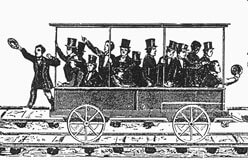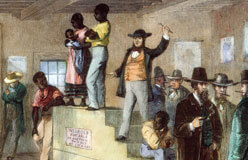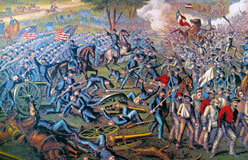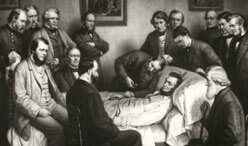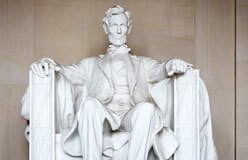As a boy, Abraham Lincoln had seen enslaved African Americans, and he’d heard his father, Thomas, talk about how wrong it was for one man to own another.
In fact, slavery was one of the reasons Thomas Lincoln had moved his family from Kentucky to Indiana. Kentucky allowed people to own enslaved persons. Indiana did not.
To Abraham Lincoln, slavery was a “monstrous injustice.” He wanted to make sure that when American territories joined the Union as states, they would enter as free states, not as slave states. Not everyone felt the same way, and it led to a question that was being argued all over the country: Who should decide a territory’s right to allow or ban slavery? Should the people who live there decide, or should the U.S. government?
Many Northerners argued that slavery should be banned everywhere in the country. Many Southerners argued that owning or not owning enslaved persons was something they should be allowed to decide for themselves. The debate over slavery got hotter and hotter, until the country seemed ready to explode. Soon after Lincoln was elected in 1860, that’s just what happened.
